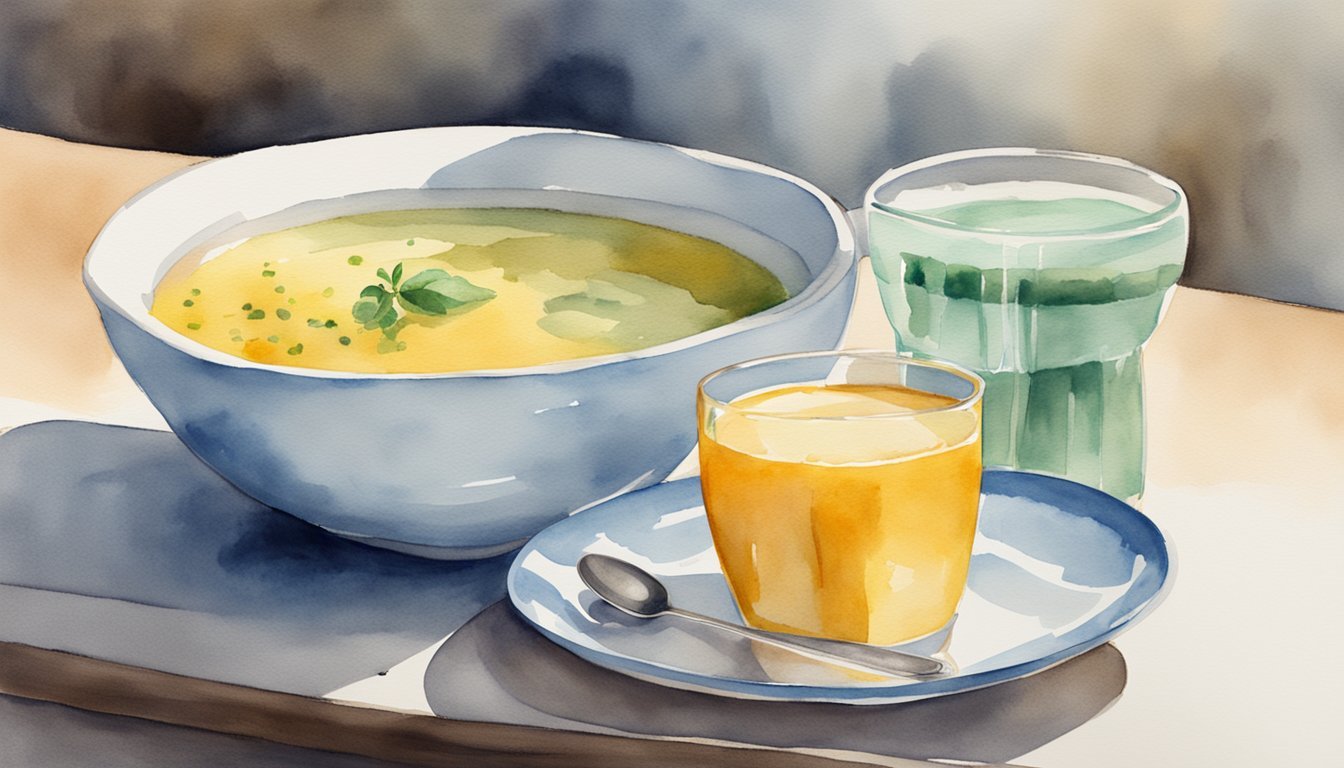Understanding Colds and Fevers
When someone sneezes or coughs, tiny droplets filled with viruses can launch into the air and be inhaled by the next potential host. A cold is one of the most common contagions, usually prompted by a variety of viruses, including rhinoviruses. Colds often entail a sore throat, runny nose, and cough.
A fever, on the other hand, is the body’s thermal response to infection, not an illness itself. It’s kind of like the body’s security system using heat as a weapon against the invasion of viruses or bacteria. When the immune system detects these germs, chemicals like pyrogens are released, prompting the brain to turn up the body’s thermostat. This is also why folks feel warmer and might have a higher-than-normal body temperature.
Common cold symptoms:
- Sore throat
- Runny nose
- Sneezing
- Coughing
Typical fever indicators:
- Elevated body temperature
- Chills
- Sweating
- Headaches
Influenza or the flu is often lumped together with colds but is a more severe beast, caused by specific influenza viruses. Both colds and the flu are highly infectious viral infections that strike the respiratory system, but the flu brings about more intense symptoms and can lead to complications, especially in the young, elderly, or those with weakened immune systems.
Seeking medical advice from a healthcare provider is wise, especially if symptoms are severe or persist, to rule out a potential bacterial infection and discuss possible treatments.
Curious about that old wives’ tale, “feed a cold, starve a fever”? Check out how healthcare habits are influenced by folk models of infection in an English suburban community on Springer Link. And if you’re teetering on the edge of a feverish state, understanding how your body temperature can forecast the early stages of a cold might be just what you need, as discussed in The Lancet.
Debunking the Myth

There’s an old saying that goes, “Feed a cold, starve a fever,” which suggests different treatments for colds and fevers. This section explores the truth behind the adage and provides a scientific viewpoint on illness management.
Origins of the Saying
The phrase “Feed a cold, starve a fever” is believed to have been first recorded in 1574 in a dictionary by John Withals. Its origins imply that eating could help cure a cold, while fasting could resolve a fever. However, this advice is not backed by scientific evidence, and adhering to it might not be the best practice for recovery.
Scientific Perspective
Modern medicine dismisses the notion of “feeding” or “starving” when ill. The body’s energy needs increase when fighting infections, making adequate nutrition and calorie intake crucial. Medical myths like these are often debunked as they may contradict what is actually beneficial for recovery: a balanced intake of nutrients and sufficient hydration to support the immune system.
Best Practices for Recovery
When dealing with a cold or fever, the focus should be on hydration and proper nutrition. Fluids like water, juice, and broth are vital to prevent dehydration, while foods rich in vitamins, such as citrus fruits, broccoli, and strawberries, can support the immune system. Rest is equally important, as is maintaining a comfortable environment to encourage sleep.
When to Seek Medical Attention
Certain symptoms, such as high fever, breathing problems, seizures, stiff neck, or severe loss of appetite, warrant prompt consultation with a healthcare provider. It’s crucial to seek medical advice if standard recovery practices and over-the-counter medication don’t improve the condition or if symptoms exacerbate.
Alternative Remedies and Prevention
While some alternative remedies like vitamin C-rich herbal tea or hot tea can be comforting and may help alleviate symptoms, they should not replace medical advice or proper nutrition. Prevention remains key, with practices like proper hand hygiene, avoiding contact with sick individuals, and maintaining a diet high in antioxidants, protein, and iron found in veggies like kale and potatoes to support the immune system and potentially stave off illnesses.
Nutrition and Hydration Tips

When under the weather, the right nutrition and hydration can aid the recovery process. These tips provide specific food and fluid guidance to help alleviate symptoms when sick.
Foods to Eat When Sick
Opting for comfort and nutrition often means reaching for chicken soup. Not only is it warm and soothing, but it also provides hydration, salt, and nutrients that the body needs for recovery. Incorporating fruits like citrus and strawberries, along with veggies like broccoli and potatoes, can supply essential vitamins and antioxidants. These foods can boost the immune system and provide necessary vitamin C. Protein, found in broth or cooked lean meats, helps repair the body, while iron from leafy greens supports oxygen circulation.
- Citrus fruits: Supply vitamin C
- Chicken soup: Hydration and nutrients
- Broccoli/Potatoes: Antioxidants
- Lean meats/Leafy Greens: Protein and Iron
Importance of Hydration
Hydration is key when fighting off illness. Drinking plenty of fluids helps maintain balance in the body’s systems and assists in flushing out toxins. Water is the most effective liquid for staying hydrated, but juice can also be beneficial if it’s not high in added sugars and provides vitamins. One should take care to avoid alcohol and caffeine as they can lead to dehydration.
- Water: Essential for hydration
- Juice: With no added sugars for vitamins
- Avoid Alcohol/Caffeine: Can cause dehydration
Myths About Food and Illness
Common phrases like “feed a cold, starve a fever” are actually medical myths. Eating well is important for both colds and fevers due to the body’s increased need for nutrients. Healthy food should not be skipped; the body requires energy to fight off infection, whether one has a cold or a fever. Instead, focus on balanced nutrition and hydration to support the immune system.

